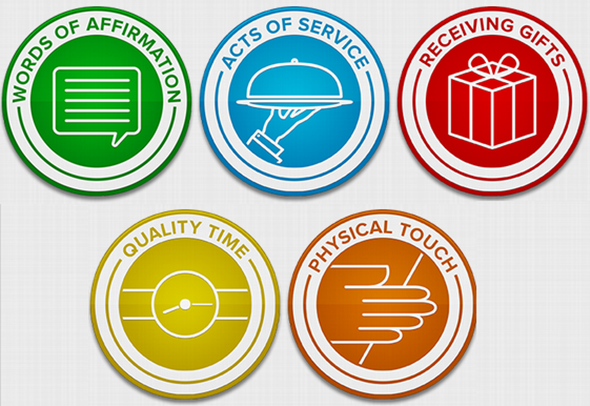Among the things they rarely teach us growing up is that there is such a thing as love languages. Since we often aren’t told about them we don’t know that we tend to think only in our dominant one and that our friends, family, and colleagues in all likelihood don’t share it. That’s why knowledge of the concept can be a real game changer in those relationships.
What are the love languages?
In his book by the same name, Dr. Gary Chapman goes into great deal explaining five universal ways that people express and interpret love across cultures, religions, and time. In his three decades of work as a couples’ counselor he kept noticing specific patterns in the way that couples communicated. As he studied more he saw that the same patterns extended into non-romantic relationships as well: towards children, colleagues, and even acquaintances.
The languages are:
Quality Time – you want to have uninterrupted (read: no smartphones and checking for email) time with the people you care about.
Gifts – you enjoy tokens of appreciation – not necessarily expensive gifts, but just things that indicate care and affection.
Acts of Service – you appreciate things being done for you – there’s nothing better than someone doing something for you that you had on your to-do list.
Touch – this doesn’t need to be a romantic touch, but this is for people who tend to be affectionate with everybody.
Words of Affirmation – you like hearing that you are doing something well or are doing something positive in someone else’s life.
So, what’s the strategy?
The challenge for all of us is that, as we mentioned above, we default to our own love language. Most people tend to dominate in one or two languages and without advice we tend to speak in them exclusively. For example, if we are a “gifts” person, we might think, “well this is something I would really like” as we find ways to express how we care to those we love. Except if that loved one is a “quality time” person your thoughtful gift might fall flat, leading to confusion and mixed messages.
There are two ways to deal with this. The easy way is to make your loved one(s) take Dr. Chapman’s test online. It’s free, and it’s adaptable for kids/singles/married people. If they won’t humor you by taking the test, you can try experimenting with examples of each love language over a week and see the results. Whatever way you deal with it, we’re confident that knowing your own love language as well as those around you can only help you in relationships with your friends, family, and colleagues.
Do you know your love language(s)? Share them in the comments below to receive a 25% coupon off men’s fragrances in our retail locations as a gift (see what we did there?).



